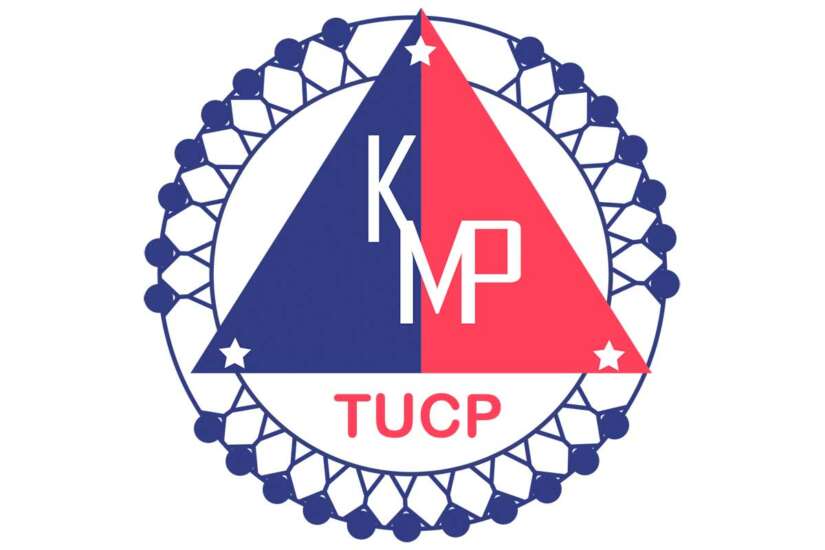The Trade Union Congress of the Philippines (TUCP) fully supports President Ferdinand “Bongbong” Marcos, Jr.’s efforts to revisit national policies to boost the entry of investments to the Philippines as a global investment hub. “We are one with the Marcos Administration in incentivizing the entry of more foreign direct investments to our country which are critical in creating new, permanent, and decent jobs for our people,” said TUCP Vice President Luis Corral.
President Marcos stated that the Government continues to explore and examine ways to upgrade the viability of the Philippines for foreign direct investments, including amending the Constitution. President Marcos recently issued Executive Order (EO) No. 49, creating the Office of the Special Assistant to the President for Investment and Economic Affairs (OSAPIEA) to double down on addressing economic headwinds and realizing investment pledges.
“We stand ready to partner to promote progressive, worker-centered, and race-to-the-top labor relations to attract investors to set up shop here and generate more and better jobs for all because trade is inextricably tied to the full and free exercise of workers’ rights,” stated the TUCP Vice President.
The TUCP, alongside the entire Philippine labor movement, recently received the prestigious 2023 George Meany-Lane Kirkland Human Rights Award from the American Federation of Labor and Congress of Industrial Organizations (AFL-CIO). In meetings in Washington, D.C., Filipino worker representatives met with key US government personalities and agencies, including with the US National Security Adviser Jake Sullivan, (NSC), US Trade Representative Katherine Tai (USTR), the State Department, the Department of Labor, the US Senate Foreign Relations Committee and the House Ways and Means Committee. “Our meetings tackled US President Joe Biden’s landmark Memorandum on Advancing Worker Empowerment, Rights, and High Labor Standards Globally, dubbed the US GLOBAL LABOR STRATEGY, which links trade and workers’ rights. This sends a clear and strong message that for the Philippines to be truly the US priority investment destination, we must place workers’ rights front-and-center not only in our labor and employment policies but in nation-building, beginning with addressing the long-unaddressed need to amplify the right of workers’ freedom of association which includes the right to organize,” explained Corral.
Under the overarching vision of the Biden Administration for worker-centered trade, the participating member states, including the Philippines, continue to negotiate the proposed Indo-Pacific Economic Framework (IPEF) with emphasis on firm commitment to fundamental labor rights and core labor standards. “We trust that our respective governments and respective labor movements in the Philippines and the United States forge a consensus and will follow through on these commitments that tariff-free access, trade agreements, and foreign investments should not be premised on cheap labor, but rather by our nation’s compliance with human rights and labor rights obligations. Addressing all the findings and recommendations of the ILO for the Philippines, enacting long-pending priority labor legislation on security of tenure and freedom of association, and conducting speedy competent investigation and resolution of cases of labor rights violations are the levers to a pro-labor rights pivot increasingly crucial to upgrade the massive investment potential and employment potential of the Philippines,” said Corral.
Through the US-Philippines special friendship, partnership, and alliance, President Marcos secured President Biden’s commitment to send a presidential trade and investment mission to the Philippines on key sectors such as innovation economy, clean energy, minerals, and food security next year. Also in 2024, the sixth annual Indo-Pacific Business Forum (IPBF)—an international gathering of business and government leaders to discuss policies, investments, and partnerships—will be held in Manila to “strengthen the Philippines’ position as a key hub for regional supply chains and high-quality investment.” President Marcos is also pushing for the reauthorization of the US Generalized System of Preferences (GSP) which will open up tariff-free access of Philippine exports to the American market for potentially 3,500 product lines and open up new job opportunities.
“This pro-labor rights pivot serves as an international seal of good housekeeping for sustainable businesses either to invest in the Philippines or to export tariff-free to foreign markets, generating more and better jobs for Filipino working families. Upholding workers’ rights is the key to capturing our niche in US priority investment areas on Just Transition towards renewables, such as geothermal, solar, and wind power, and electric vehicle and battery supply chains, considering the Philippines’ vast nickel, cobalt, and copper resources as key inputs for manufacturing batteries and other tech products. This should all be our shared vision, alongside our social partners in business and the Government, for a truly modern, just, and equitable Philippines—isang Bagong Pilipinas para sa Manggagawa, Mamumuhunan, at Mamamayang Pilipino!,” emphasized Corral.

